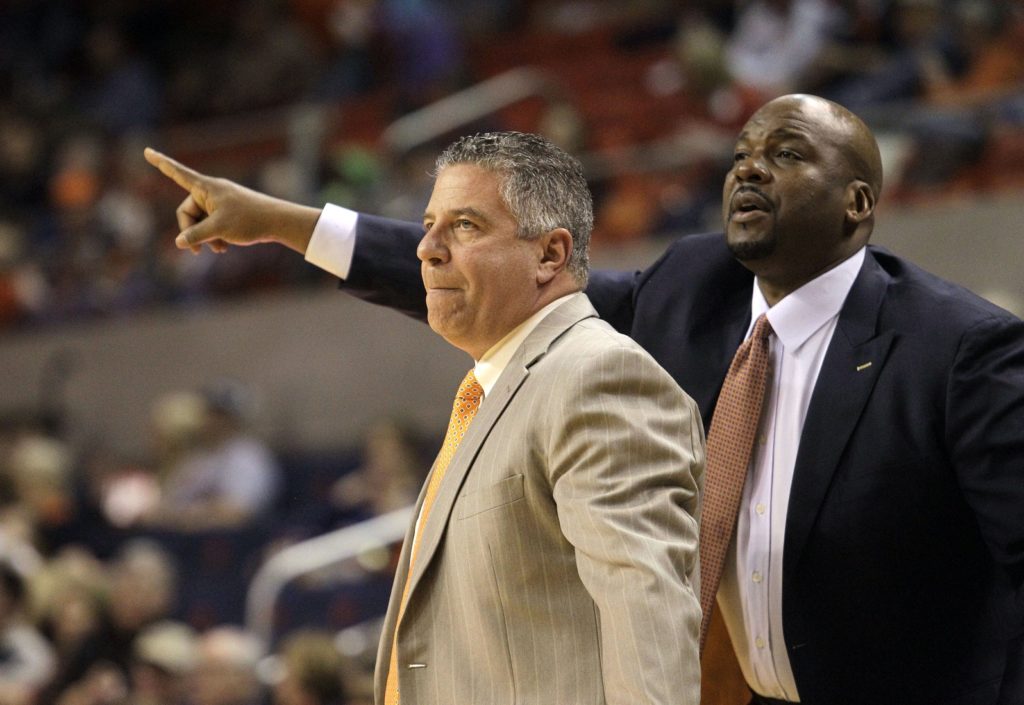Ad Disclosure
We Know You Won’t Believe This, But College Basketball Is Still Corrupt

Cash payments to NCAA basketball recruits and players are nothing new. From today’s reports, though, it is apparent that when the lawmakers and enforcers build better mousetraps, corrupt entities in the sport become better mice.
Unfortunately, the more sophisticated the scheme, the more likely it is that scheme will violate not just NCAA regulations, but also Federal law.
From today’s New York Times report:
Ten people involved with the highest echelon of college basketball, including four assistant coaches and a senior executive at Adidas, are facing federal bribery, fraud and other corruption charges, prosecutors in Manhattan announced on Tuesday.
The “Overview of the Investigation” from the sealed complaint (available here and elsewhere) lays out what the alleged perpetrators are accused of:
(T)he investigation has revealed multiple instances of bribes paid by athlete advisors, including financial advisors and business managers, as well as high-level apparel company employees, and facilitated by coaches employed by NCAA Division I universities, to student-athletes playing at or bound for NCAA Division I universities, and the families of such athletes, in exchange for a commitment by those athletes to matriculate at a specific university and a promise to ultimately sign agreements to be represented by the bribe-payors once the athletes enter the National Basketball Association.
Not surprisingly, the same document indicates that the accused participants took “steps to conceal the illegal payments,” though obviously not quite enough steps.
What makes this relatively been-there, done-that story a little juicier are the names and institutions allegedly involved.
Chuck Person (The Rifleman!) was one of the four assistant coaches arrested. Also allegedly prominently involved in this scheme is Adidas’ Head of Global Sports Marketing, James Gatto.
Then there are the schools involved. Person (for now anyway) is an assistant at Auburn. Coaches from Arizona State, USC and Oklahoma State were also arrested. Really, though, this story would never have been complete without somehow involving the University of Louisville which, while not explicitly fingered as yet, has been all but outed as details continue to emerge:
The allegations include payments of $100,000 from a company to the family of an unnamed player to secure his commitment to the school, which is described as a public research university with an enrollment of 22,640 located in Kentucky. That matches the school’s enrollment figures, according to the University of Louisville.
And they say people from Kentucky aren’t great at math.
At its dark heart, this scheme is only marginally more sophisticated than leaving manila envelopes stuffed with C-notes in lockers and mail boxes. But there is still a genius to it.
First off, at least thus far, no head coaches have been sullied with any of these allegations. So you can be certain that at some point, one or more of the head coaches involved will issue a statement professing his shock and dismay at the fact that anything like this could be happening at his program.

Second, the mere existence of multiple intermediaries between the schools and the players allegedly involved surely made tracing the money more difficult and more time-consuming. It may even have added a thin veneer of credibility to the whole enterprise.
Third, if the charges are proven as alleged, then there really was something in it for everybody.
The players got a needed work-around from the NCAA’s absurdly unfair rules against paying players. The universities locked up prized prospects for what amounts to chump change. Adidas, which has been chasing Nike with all the success of Wile E. Coyote, set up a potential farm system of future brand ambassadors. The assistant coaches and financial advisors and business managers all stood to collect as well. Deep in the footnotes of the story, there was even a former NBA official who founded a clothing line.
Except for the part about all of it being in violation of Federal law, you know, nice work, guys.
Formerly a Featured Columnist on the Philadelphia Phillies and Manchester City Football Club for Bleacher Report. Full-time attorney, part-time pundit. Follow me @philkeidel on Twitter.